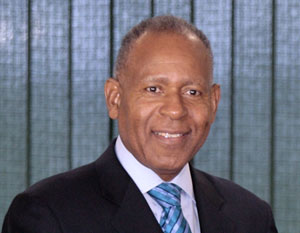 The core challenge resides in a set of recommendations located in a 155-page framework document for reforming tertiary or higher education in this 47-yearold Eastern Caribbean nation where is located, at Cave Hill, one of three campuses of the University of the West Indies (UWI).
The core challenge resides in a set of recommendations located in a 155-page framework document for reforming tertiary or higher education in this 47-yearold Eastern Caribbean nation where is located, at Cave Hill, one of three campuses of the University of the West Indies (UWI).
This framework document, anchored in the concept of “creating knowledge-based households”, is the result of a year-long work by a high level team comprising principals and others from four national campuses—(Cave Hill UWI); Barbados Community College (BCC); Samuel Jackman Prescod Polytechnic (SJPP) and Erdiston Teachers Training College (ETTC).
Known as ‘The Beckles Commission on Higher Education’–named after its chairman, Professor Sir Hilary Beckles, Vice-Chancellor and Principal of the Cave Hill Campus and widely respected as a historian, the Commission secured its mandate from the country’s Minister of Education and Human Resource Development, Ronald Jones, and commenced its task on August 29., 2011.
Its wide terms of reference included submission of “an analysis of data covering the ten-year period 2000-2010 for post-secondary matriculation trends of Barbadian students”;
further, “a disaggregation of assessment of the admission and demand profiles; graduation and performance rates across accepted demographic ranges of the UWI (Cave Hill), BCC, SJPP and ETTC.
The Commission was further required to ”review” the current structure of the four tertiary national institutions (as identified above) and offer recommendations that “speak to improvements in operations, governance, programming, student support and fees…”
FEES DILEMMA Ah, the “fees”: Therein lies the rub over current spreading political controversies and rising unease among parents and students over the government’s surprising announcement that from academic year 2014, all Barbadian students at the three UWI campuses—Mona, St. Augustine and Cave Hill—must pay 20 percent of their tuition fee, while the government shoulders 80 percent of overall economic cost.
Ah, the “fees”: Therein lies the rub over current spreading political controversies and rising unease among parents and students over the government’s surprising announcement that from academic year 2014, all Barbadian students at the three UWI campuses—Mona, St. Augustine and Cave Hill—must pay 20 percent of their tuition fee, while the government shoulders 80 percent of overall economic cost.
Jamaican UWI students have long been facing this 20 percent requirement. And, except for a comparatively brief period, so too were students of Trinidad and Tobago.
In sharp contrast, Barbadian UWI students have traditionally benefited from a cherished legacy based on the ideology of ‘Barrowism’:
That is free education from primary to tertiary level at the expense of the state, as had been determined by the now late Errol Barrow– Barbados’ ‘Father of Independence’–and happily implemented by successive governments led by either his Democratic Labour Party (currently in office) and the opposition Barbados Labour Party, which has already fired political salvos for a snap general election with the promise of immediate reversal of the 20 percent tuition fee .
In a recent editorial on ’Lowering the cost of university education” the Jamaica Observer”, in empathising with the prevailing economic difficulties facing Barbados and its necessary estimated US$100 million indebtedness to the UWI, also felt it necessary to contend that, “in any case, no government is obliged to provide free education, inclusive of university education…”
SHOCK ANNOUNCEMENT
The argument that’s relevant to the mushrooming controversies over the impending implementation of the 20 percent tuition fee for Barbadian students, is that it came as a shock announcement by Finance Minister, Chris Sinckler, in his recent 2013 budget presentation, without any prior consultation.
More significantly, it was not a proposal even alluded to for possible future consideration in the implementation of the range of ideas and recommendations outlined in the mandate assigned the ‘Beckles’ Commission on Higher Education” by the Minister of Education and Human Resource Development.
In the current scenario of political tension and widening calls for structured dialogue involving the government, parliamentary opposition, the private sectors and civil society organizations, there has emerged a glimmer of hope for a likely meeting soon between Prime Minister Freundel Stuart and Opposition Leader Mia Mottley.
PUBLIC INVOLVEMENT The Minister of Education and Human Resource Development, who commissioned the report, seems to owe it to himself, the government and people of Barbados to ensure availability of at least the core features of the Beckles’ Commission report to much more than the administrations and teaching staff of the quartet of campuses that were integrally involved in shaping the “framework document”.
The Minister of Education and Human Resource Development, who commissioned the report, seems to owe it to himself, the government and people of Barbados to ensure availability of at least the core features of the Beckles’ Commission report to much more than the administrations and teaching staff of the quartet of campuses that were integrally involved in shaping the “framework document”.
Perhaps the most regrettable development to have followed the official submission of “The Beckles Commission” report is the very surprising disclosure by Finance Minister Sinckler of the government’s unilateral decision to impose the 20 percent tuition fee, which would affect some 8,000 Barbadian students at Cave Hill, in addition to those at Mona and St Augustine.
I say most regrettable since, among the specific recommendations and observations outlined in the ‘framework document”, introduction of a 20 percent tuition fee is not listed or even alluded to. From whence, therefore, came this 20 percent tuition fee for Barbadian UWI students?
A core feature of the Commission’s recommendations is a “revised funding model for tertiary education with the government providing annually 85 percent (inclusive of a higher education levy); ten percent contribution from the private sector; and five percent by the consumer in a new cost-sharing scheme. It is felt that the five percent economic cost should be introduced as a “social amenities fee” (already entrenched at Cave Hill) for all tertiary educational institutions.
Incidentally, the administration of Prime Minister Stuart, currently being accused of ditching a key legacy of National Hero Barrow, may find it useful to inform itself why former Trinidad and Tobago Prime Minister Patrick Manning had to abandon the decision on the 20 percent tuition fee for students at the St. Augustine campus upon discovering– to his political hurt–the significant percentage of affected students from poor’ Trini’ families who felt compelled to suspend their pursuit of higher education.
In the circumstances, it could prove quite useful for public education in Barbados that instead of being stuck in the proverbial mud with a continuation of confrontational party politicking over the 20 percent tuition fee for students, independent public fora could be organised, in cooperation with the business sector, for Professor Beckles and fellow commissioners to address the cogent issues relating to the proposed strategies for reforming tertiary education in Barbados.



.jpg)










